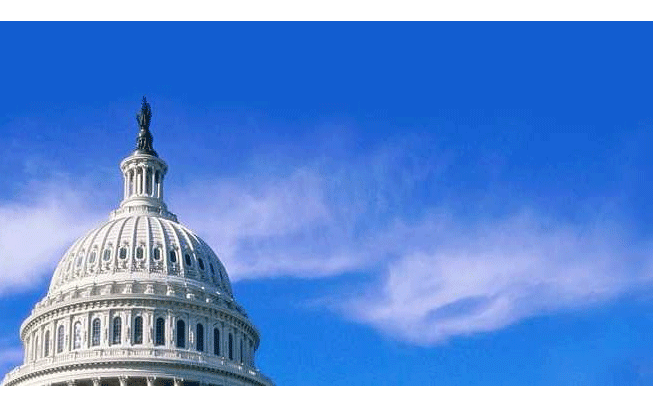Representatives from the American Association of Airport Executives, Airports Council International – North America and the U.S. Travel Association have sent joint letters to key lawmakers, urging them to raise the federal cap on the Passenger Facility Charge in the appropriations package for Fiscal Year 2018. The latest push for a PFC increase comes as members of the U.S. House of Representatives and U.S. Senate debate an omnibus funding bill.
AAAE President and CEO Todd Hauptli, ACI-NA President and CEO Kevin Burke, and U.S. Travel President and CEO Roger Dow all signed the letters that pushed back against claims by airlines that the PFC is a tax.
“First and foremost, PFCs are not taxes, no matter how many times the airlines claim that they are, “ the executives said in the letter. “They are local user fees that airports rely on to help defray the costs of building airport infrastructure that benefit the airlines and our passengers. Moreover, PFCs are imposed by states or units of local government. PFCs are not collected by the federal government, not spent by the federal government and not deposited into the U.S. Treasury.”
Airports appear to be making some headway in their long-term efforts for a PFC cap increase. As it stands, the Senate’s version of the FY18 Department of Transportation spending bill includes a proposal to raise the cap on local PFCs from $4.50 to $8.50 for originating passengers. The plan put forward by the Transportation Appropriations Subcommittee would keep the current cap in place for connecting passengers.
While passage is still far from reality, it does show progress for the airports’ cause. Airlines, meanwhile, are lobbying heavily to keep the status quo.
Airlines for America President and CEO Nick Calio asserts that even a small PFC increase would hurt not only airlines but also the economy and passengers. In his separate letter to Congress in mid-November, Calio called the Senate bill’s proposed increase “both unnecessary and insupportable” and emphasized that airlines did not receive equitable consideration in the appropriations package due to their absence at the Senate infrastructure hearing this past March.
Calio claimed that U.S. airports “have never been in a stronger financial position,” and pointed to revenues from rents and fees, PFCs, non-airline revenues and funding from the Federal Aviation Administration’s Airport Improvement Program. He also pointed to airports’ strong borrowing position and suggested that “if the airport community truly needs this money at a time of record-high airport revenues and financing availability, they should be willing and required to collect the tax themselves.”
In their letter Hauptli, Burke and Dow called out what they consider to be airlines’ “misleading claims and accusations,” claiming that the increase to the PFC cap is “both necessary and supportable.”
“The airlines seem to suggest that airports should simply take on more debt and issue more low-interest bonds to meet their growing infrastructure development needs. Airports are already highly leveraged with debt, and it is possible that airport bond financing costs may rise dramatically soon,” the airports’ representatives said in the letter, referencing proposals that would eliminate private activity bonds and advance refunding for governmental bonds.
Regarding Calio’s call for airports to collect the PFC separately, the letter from Hauptli, Burke and Dow noted that airports do not have access to airline computer systems and called the suggestion “simply a head fake designed to change the subject.” The executives also called out airlines for opposing a PFC cap increase when airlines themselves have increased passenger costs significantly in recent years with the addition of checked-baggage fees and other charges.
Separately, ACI-NA’s Beyond the Runway Coalition joined the fray, sending a separate letter to members of Congress, urging them to advance the PFC cap increase and to increase funding for the Airport Improvement Program. Fifty-one members of the coalition signed the letter.







